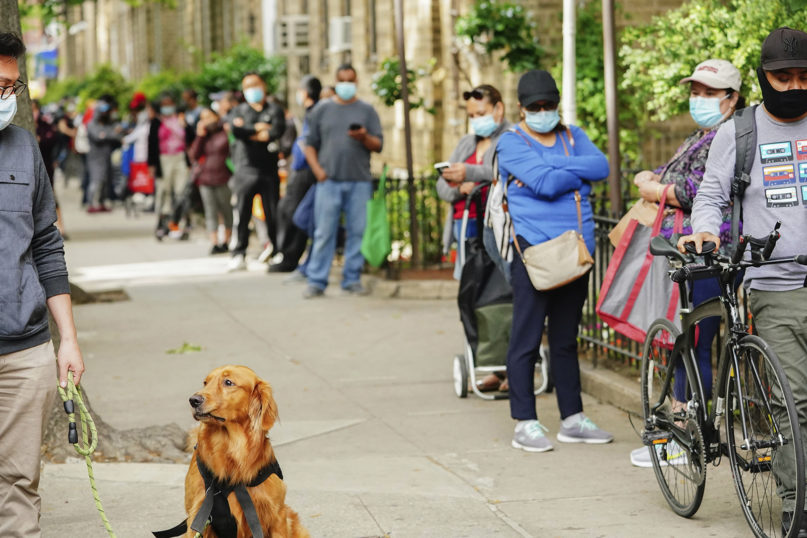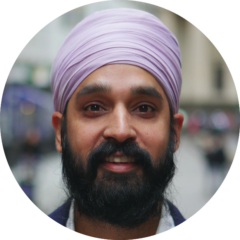(RNS) — I am a scholar and practitioner of religion, I know as well as anyone that religion is not just about spiritual practice. Our communities and social ties are vital components of religious experience and they help keep us attached to our faith. I miss seeing my own Sikh community (sangat) every Sunday and relish the chance to be in their company again. I, like everyone else, yearn for normalcy.
But as a member of Gov. Andrew Cuomo’s New York Forward Interfaith Advisory Council, I’ve had a lot of opportunity to hear and to think about the process for reopening places of worship. While the situation we’re in is complex, what I have learned so far is simple: We must exercise extreme caution and prioritize the safety of our loved ones above all else.
My family has experienced the virus firsthand. My wife is a physician at one of the larger hospitals in New York City. Our family survived infection a few weeks ago. It was the most terrifying experience of our lives. We know what’s at stake here.
As a father, I have a simple litmus test. If it’s not a situation to which I would be willing to expose my babies, I have no ground to expose other people I claim to love.
RELATED: What I learned from the coronavirus
We still don’t know enough about COVID-19 and how it affects our systems to fully mitigate the risk of spreading it in groups. What’s clear, however, is that COVID-19 affords no exemptions for places of worship. Within weeks of reopening, the Catoosa Baptist Tabernacle in Georgia and the Holy Ghost Catholic Church in Houston both shut down after several families tested positive for the coronavirus. In California, a church reopened for Mother’s Day has potentially exposed 180 of its members to infection.
What makes these incidents more curious is that they seem to go against the very notions of mutual care that our faith traditions teach us. Imagine how regretful any pastor, imam or rabbi would feel who — God forbid — hurried to reopen only to lead innocent people to an early demise. What might it truly look like instead to love our neighbors as we love ourselves?
I don’t discount the factors that make faith leaders anxious to reopen. Some people rely on their institutions for food and shelter or for critical mental health benefits. Some are rightly concerned for the fiscal health of these religious institutions.
RELATED: Click here for complete coverage of COVID-19 on RNS
All of these are vitally important, and my heart aches for those who are suffering from their closure. But when the opportunity cost is human life, we have to adapt in ways that address people’s needs without putting their lives at risk.
Our faith traditions speak about the preciousness of human life. We believe that to honor life is to honor God, and that to honor our neighbors is to honor ourselves.
Religious communities around the world are creating new ways of meeting these needs, and our current moment demands that we be creative in marrying our rich traditions with new solutions. As a scholar and historian, I say with confidence that this is how religion has survived in the past. As a person of faith and an activist, I also believe that this is how we will survive and move forward together.






